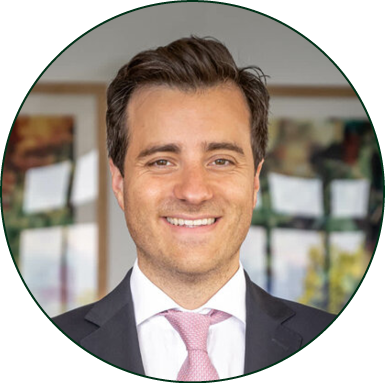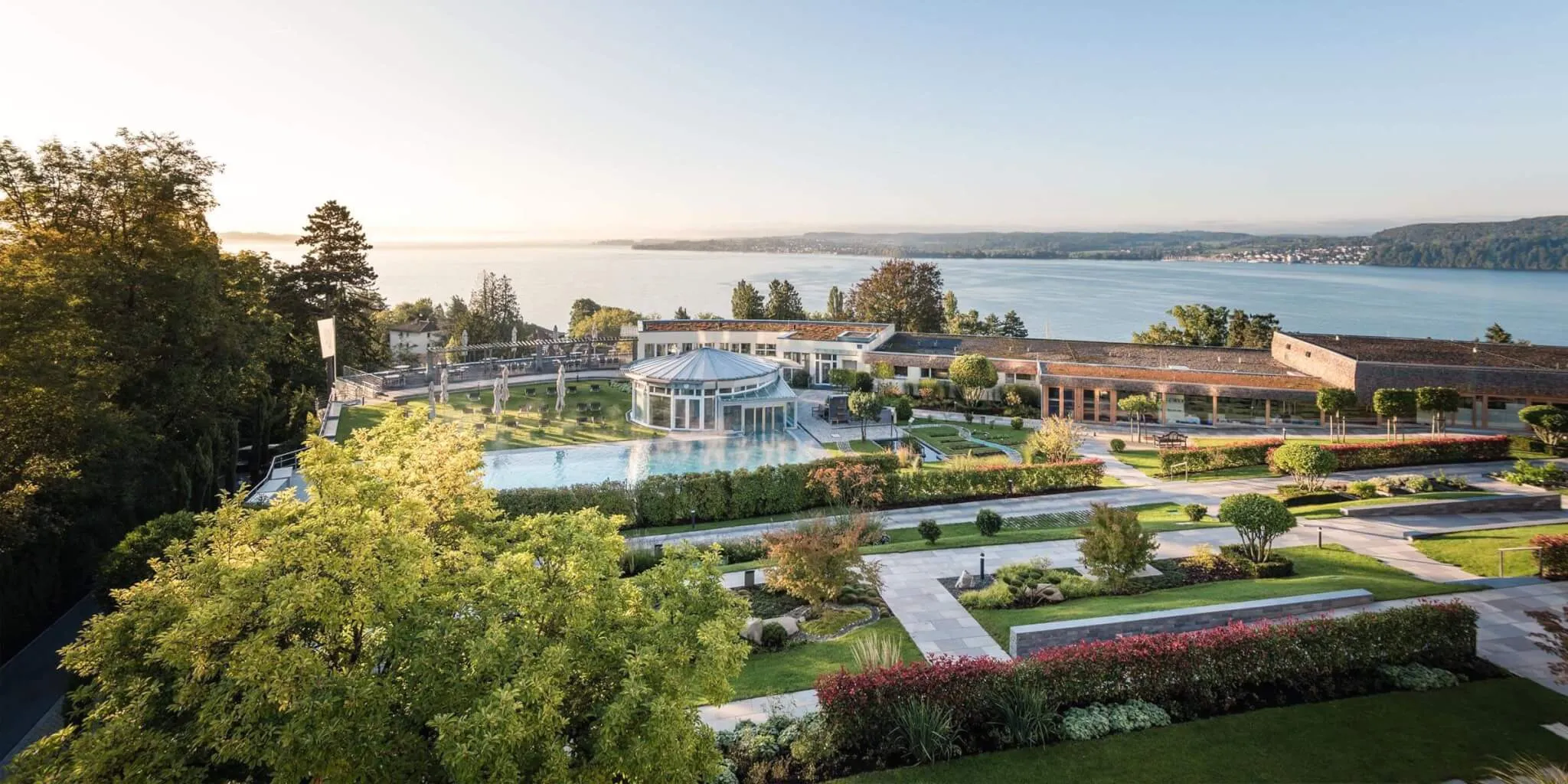Longevity: On “The Culture of Interruption”
An interview with Leonard Wilhelmi, Managing Partner of the Buchinger Wilhelmi Fasting Clinic
Leonard Wilhelmi has led the Buchinger Wilhelmi Fasting Clinic on Lake Constance as Managing Director since March 2019, representing the fourth generation. In parallel, his brother Victor Wilhelmi and cousin Katharina Rohrer-Zaiser manage the clinic of the same name in Marbella, Spain. Their great-grandfather, Dr. Otto Buchinger, a naval physician, established the comprehensive fasting method over 100 years ago after healing himself from severe rheumatoid polyarthritis through fasting. Today, the clinic serves as a destination for patients from around the world seeking prevention or healing through a holistic, medically grounded therapy approach that addresses both body and mind.
Leonard Wilhelmi completed a master’s degree in International Business Management at the University of St. Gallen (HSG). At HSG, Leonard Wilhelmi is the founding president of the Family Business Club, which aims to foster exchange between university students and family businesses. After various internships, including one at an international management consulting firm, he initially worked in a publicly traded telecommunications company starting in 2015. Since 2017, he has been involved in managing the family clinic. He is the father of two daughters, born in 2020 and 2024.
Mr. Wilhelmi, you are the successor in a family business now in the fourth generation – how much time did your parents and you, as well as your brother and cousin, need for the transition and are there any tips you could give to others for a successful handover?
We started discussing succession topics very early within the family circle. It certainly helped that we are a close-knit family. When I was in my second semester of studies, we worked with a professional coach and initially created a family charter. This triggered a maturation process: suddenly, we also discussed topics that were not transparent to me until then, even though I had always been present in the clinic from a young age. For example, how are the majority of shares distributed – since we have two family branches – what happens with spouses by marriage, what about in case of death, and how precisely are transition processes handled? Everything was made transparent, but it was also very openly debated. Through this, we learned to argue in a ‘safe space.’ All in all, the process of reaching an agreement took about two years before we began the actual preparation for entry and takeover.
A family charter helps to ensure that everything has been discussed. Ideally, you would not need to pull it out of the drawer frequently, similar to a prenuptial agreement, because everything runs smoothly. Through this, we’ve established a foundation for a shared culture. In any case, it is better to engage in controversial discussions beforehand rather than waiting until you are already deeply involved in the company and its responsibilities. However, the charter also requires periodic updates. We recently did this after 14 years because the context has changed. For future generations, having the charter as a basis makes things easier.
You know many entrepreneurs – on one hand, from your network of family business owners, and the other hand, as your patients in the clinic – and you have noticed that the topic of (mental) health generates significant interest. Is there any reason for this development? Do you assume that there is a difference between generations?
There is objective data showing an increase in diagnoses such as burnout, stress, chronic fatigue syndrome, and similar conditions. This concerns many people. Personally, I believe that complexity has risen in my generation: Roles in both personal relationships and professions are no longer narrowly defined; they have become more diverse. Simultaneously, we must handle numerous issues, leading to more frequent stress situations. I see it in myself as well – being a father and a business head, I need to be approachable at times, but also authoritative in specific situations. Additionally, global phenomena like ongoing wars and crises contribute to heightened uncertainty. This was not as prevalent in the past.
When it comes to older family business owners, I observe that the conditions for stress and relaxation were different in earlier periods: three weeks of family vacation were common, evenings were spent with family without mobile phones, Sunday gatherings at church were regular, and long-term partnerships had clear roles.
When you think about your patients in the clinic, many of whom are entrepreneurs and executives, is there a noticeable trend from post-treatment (after burnout or stress-related illnesses) toward preventive treatment? Is it realistic for executives to take time for this ‘in time’ in their busy daily lives?
I see both sides: many consciously engage in prevention; they come to us for two to three weeks each year to deliberately slow down and step out of their everyday routines. This group is growing, but there are also those who come too late.
I observe that today, there’s no longer a need to feel ashamed about taking time for oneself without already having an illness. On the other hand, I have patients who are individuals in the spotlight or even public figures: they fear that taking time off with us might be seen as weakness or a lack of performance. I still remember my internship days in consulting, where the prevailing notion was that the person who endured the longest without breaking down was, in a way, the hero. There’s a gradual paradigm shift happening, especially since Covid, which has made our own vulnerability more evident.
Do individuals with significant responsibilities and busy schedules fundamentally focus on maintaining their performance and resilience beyond their professional lives? In your opinion, is there a greater awareness among these individuals that they need to take better care of their bodies and minds than previous generations?
Speaking for myself: as a family entrepreneur, one often plays a triple role as a shareholder, business leader, and family member. It can be quite a balancing act not to carry conflicts from one sphere into another. This can become burdensome because each conflict has additional implications, especially when dealing with sibling disputes. That is why we have a family coach as a neutral party whom we consult even during conflicts. For me, maintaining capacity – what we call ‘resilience’ – is crucial.
But I also hear from others that the rejuvenation they find here is unlike anything they experience during vacations. They regain their performance by centering themselves here and drawing strength for future tasks. Their focus and decision-making become clearer. It’s like an orchestra coming back into harmony – a synergy of different dimensions of body and mind. Younger individuals are indeed very interested in this, especially because they are much better informed when they arrive. They learn about fasting through podcasts, videos, or books.
As an entrepreneur with a significant role in the family business and a young father of two small children, you face diverse demands. How do you manage to find balance, and how does exchanging experiences with patients help you do things differently? What advice could you offer others based on your own experiences?
We have just had our second child, and I’m striving to strike a good balance in my role as a father. In doing so, I remind myself that we belong to a generation that is quite fortunate. Especially when compared to my grandfather: he emerged from the war, simultaneously founded two clinics, and had three children. Yet, he never complained about excessive work because, for him, it was a privilege to finally be able to create and shape things again after the wartime period. This illustrates how individual perceptions of stress can vary significantly.
Currently, the pendulum is swinging in a different direction. In job interviews with younger individuals, I notice a strong emphasis on reducing working hours. It’s essential to find the right balance of stress and relief for oneself. Constant stress without breaks can also lead to illness. Naturally, I learn a great deal from the clinical environment, which also applies to my personal life.
And in this context, another question arises: do your guests find it more challenging today than during your parents’ time to ‘switch off’ and allow themselves to rest? Could this be even more difficult for entrepreneurs and managers compared to other guests?
Perhaps you are familiar with the story: two men engage in a competition to see who can saw through a tree trunk faster. One starts immediately, giving it his all, refusing to stop sawing, while the other takes occasional breaks, cleans the saw, and continues with focused effort. In the end, the latter still wins because he did not drive himself to exhaustion.
We have lost the culture of interruption – this does not mean that taking a break is laziness. It is precisely the interplay we need: between rest and activity, between eating and fasting – a fundamentally natural rhythm.
However, today, there is never a true interruption. We constantly carry everything with us – thanks to our smartphones – no matter where we are. Many can no longer create these interruptions independently, even when they are far away on vacation. For many executives, our clinic is the place where they finally manage to pause again. Others seek solace in monasteries. Fasting is one way to rediscover the culture of interruption.
In my opinion, earlier generations had it easier when it came to switching off. Today, we are all trapped in the ‘addiction spiral’ of smartphones. For us, here at the clinic, it is a delicate balance: we cannot completely shut off the internet for our patients, but we do enforce specific phone-free zones and times. Sometimes, this has even led to patients being asked to leave the clinic. We are caught in a certain dilemma – we want to offer recovery and tranquility as part of our product, but we cannot solve society’s overall problem within the clinic’s walls.
Fasting has certainly become a fashionable topic thanks to intermittent fasting, but many people still do not see fasting as a comprehensive healing method outside of weight loss. What scientific findings do you have that can support the effects of fasting in prevention and healing, as well as strengthening resilience and performance?
Since the end of the 1990s, a lot of research money has gone into the topic of longevity, particularly in the USA. By studying the so-called Blue Zones, the regions where there is an above-average life expectancy, the effect of fasting was discovered by chance. Fasting periods have always been part of our lives, we have not always eaten continuously. Fasting causes repair processes to take place in your body, similar to a pit stop. Afterwards, there is a regeneration effect in which cell structures are rebuilt. If you support this rebuilding phase well, including with the right food, you will in principle have a very sustainable phase in which you feel good and your body is simply one hundred percent efficient again. Fasting helps to bring things back into harmony on a physical level, the metabolism is restored, the skin changes for the better, blood pressure is harmonized, tendencies towards pre-diabetes are balanced out and sleep patterns are improved. And as a side effect, you lose weight.
You certainly have the challenge of finding the right and sufficient specialists in the medical/nursing environment for your clinics. But does this also apply to managers? What specific skills will you need and look for in your management staff in the future?
Fortunately, we are very popular in all professions in the fields of medicine, nursing, and therapy, and we are perceived as a good employer in the region. But there are problems in some professions where there are simply fewer people being trained today, for example specialists who work with their hands, such as masseurs.
For the future, we need people, especially in positions of responsibility, who understand how we can use digitalization and all its innovations sensibly for our patients and as a company. The collection and utilization of data that will be collected via wearables in the future, such as sleep data, blood sugar measurements and ketone measurements, will play an important role. The boundary between the digital and biological human barrier is becoming increasingly permeable, and we are monitoring this closely. My mother was responsible for the medical side of things, my father for the commercial side. But we now also need other skills on board, which we can no longer so clearly represent just in the family.
And if you can tell us: what do you think is the secret to the success of your clinic, which has to compete in an increasingly tough market with large chains and all kinds of “wellness fasting” offers?
The difference between us and many of our competitors is that we are actually a clinic. I do not think there is a competitor that has a license as a clinic, most of them come from the hotel industry.
But I would say that the biggest difference between us and other providers is that, as a family business, we have a different focus on the local feeling, treat our staff differently and therefore have a different approach to patients. This is also reflected in our company: you feel integrated as a person, not primarily as a customer, you can tell that we have thought about things as a family. For example, we decided as a family that we wanted to offer very different room categories, even if the smaller categories are not economically viable. We are also the only company in this sector that has its own research department. Even if some say that this is the job of university hospitals, we as a family have decided to do it ourselves because we are interested in the results and are thus also expanding our expertise and our competitive edge. This in turn is felt by the patients here: this is a place with a lot of knowledge and experience.
While we want to move with the times and change, we want to keep that feeling, which is why we do not want to spread ourselves far and wide through a franchise system. We believe in the power of fasting and our particular method, which helps both society and a healthcare system to evolve. That is why we will only ever do it where we believe we can make a difference in this way.
You pursue a holistic approach in your clinics. What does “sustainability” mean to you in this context?
This is a very important topic for us: we are Demeter-certified, buy a lot from regional agriculture and have been working intensively on water treatment, recycling, cradle-to-cradle approaches, etc. long before the mandatory audit from next year. Incidentally, fasting has a negative footprint, as an analysis has confirmed. We still have the greatest leverage in sustainable construction and energy generation, but this simply takes longer due to the construction cycles. As a family, here, we can act in a completely different time frame either.
Dare to look ahead: what will be important in the coming years for those in the “boomer generation” who wish to transition to a healthy retirement? And what will be important for your generation of entrepreneurs and executives to set the right course in an ever faster changing and more complex business world in order to maintain as long a “health span” in their lives as possible?
Fasting is a good starting point for everyone to extend their health span. I can only recommend everyone to simply try fasting – and I am not saying this as an entrepreneur, but out of my own conviction. It is not something that only a few people can do, like running a marathon. It is a skill that we all have. And that is why it is also very unifying – we see that here: we have Christians, Muslims, and Jews here together at all times of the year, without conflict. Fasting is a good starting point for deciding what you want to do next, whether it is doing more sport, eating more healthily or being more mindful of yourself and others.
Mr. Wilhelmi, thank you very much for talking to us!





